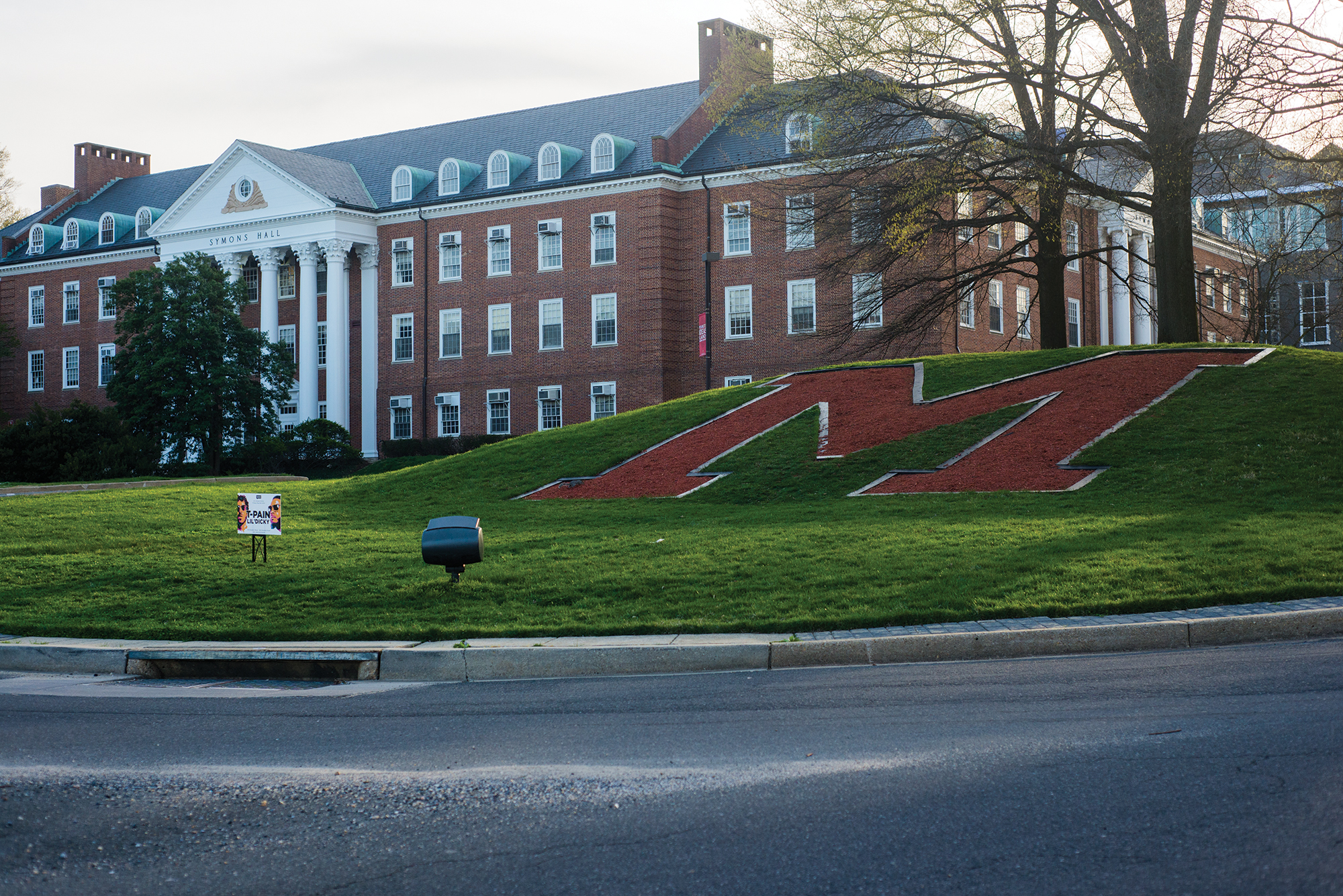Students and faculty packed the special events room in McKeldin Library for a discussion on free speech and hate speech led by the University Senate’s diversity task force Monday.
The university president and University Senate’s Joint Task Force on Inclusion and Respect’s discussion comes just weeks after the senate’s Campus Affairs Committee decided that a campuswide ban of hate symbols would be a First Amendment violation.
University official Diane Krejsa’s comments on the matter, wherein she said this university does not function as a home, sparked backlash in the #UMDNotAHome Twitter campaign.
After a student brought up the campaign at the discussion and read Krejsa’s comment, Krejsa immediately stood up and introduced herself. Then she tearfully responded to the campaign, saying she had been “misrepresented.”
[Read more: UMD officials say a campuswide ban of hate symbols would limit First Amendment rights]
“I am married to a Jewish individual, my daughter is a lesbian, my daughter-in-law is a minority from another country, and I believe I have been misrepresented,” Krejsa said. “I do not believe that I am not sympathetic to the harm I know that all of you who are minorities … have felt over the years. I have not felt that. I am not a person of privilege. Some people have called me a person of privilege. My parents worked their way and sent me to college working for their whole lives.
“I do believe this is your home, and this is every student’s home and they’re entitled to feel safe here. … I support the effort of all of you to get to that point,” said Krejsa, this university’s deputy general counsel and chief of staff.
Later in the meeting, a student spoke against Krejsa’s comment about privilege.
“The first thing you said to defend yourself was, ‘I have a Jewish husband, I have a lesbian daughter.’ What that came across as to me is, ‘I’m not racist, I have black friends.'” she said. “Your skin color alone gives you the privilege.”
Krejsa responded with an apology and tried to explain further but was interrupted by the student.
“This is what I am talking about. You always try to attack, you are trying to police how we feel,” the student said.
The discussion began with the senate’s actions on hate speech and free speech issues. Several students at the discussion wondered what the University Senate and the task force has done to tackle such problems.
“As someone who will have been on this campus for a total of six years, I can tell you that issues of hate and bias are nothing new,” said Delisha Thompson, a graduate student in the public policy school. “It’s becoming so normalized that I’m kind of getting desensitized to it, so I am kind of wondering what actionable items you actually see taking place.”
“That’s a fair comment,” said Warren Kelley, co-chair of the task force. “Can I sit here and promise you that 19 things are going to happen? No, I can’t do that, right? But do we care about the topic, do we care about the issues you’re raising, do we want to think through thoughtfully as a campus what kind of steps we can take? … I would say yeah.”
Kelley, however, did mention that a climate study will be conducted by a private surveyor.
[Read more: Students call out admin with #UMDNotAHome after an official’s comments on hate symbol bans]
Thompson suggested to Kelley that the senate should look into getting an expert to conduct workshops, which minority faculty would be able to attend as well as students, and educating the campus on resources available for minorities.
“The U.S. context of what is free speech … generally includes hate speech. I find that really problematic, but I also don’t know that we as a single institution can completely change that,” LGBT Equity Center associate director Nic Sakurai said. “We should be thinking about all the other things that we can do, like having our own [institutional] voice.”
Yusuf Mahmood, a junior economics and philosophy major, suggested looking for long-term solutions to prevent hateful messages from being “empowered,” and said restricting speech could do more harm than good.
“I don’t think that the relevant discussion is … whether people who spread hateful ideas should have, if we should respect their rights to free speech. I think the relevant question to ask is what can we do to actually stop their ideas from spreading,” Mahmood said.
Maud Acheampong, a sophomore government and politics major, said some minority students feel unsafe on campus due to hate incidents.
“I feel as though [campus minority communities are] often being told to sacrifice our safety for the greater good,” Acheampong said. “But I’m tired of feeling unsafe, I’m tired of feeling like an afterthought, I’m tired of feeling so lost on this campus.”
Co-chair Lucy Dalglish mentioned that the task force hopes to have another discussion “in the near future” on the same topic with legal representatives present.



